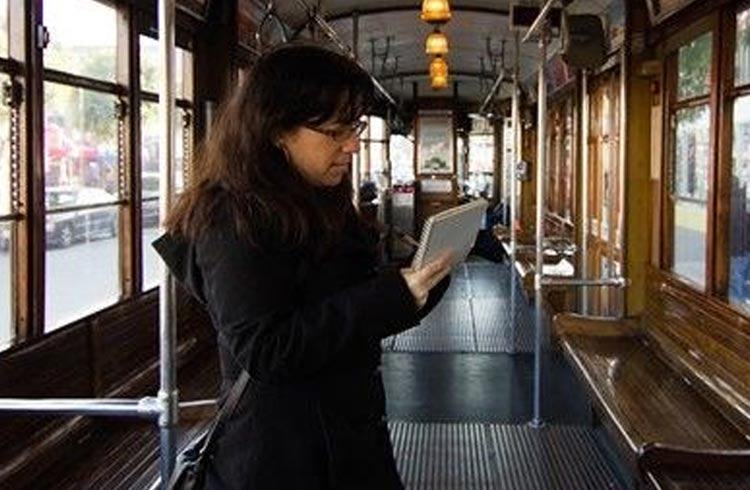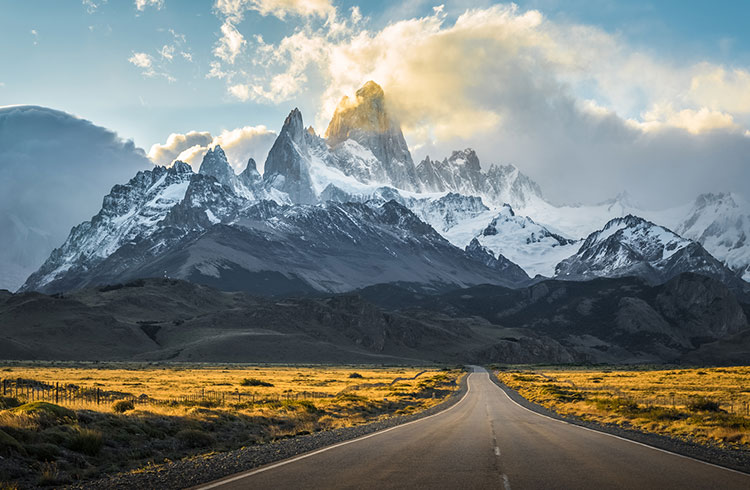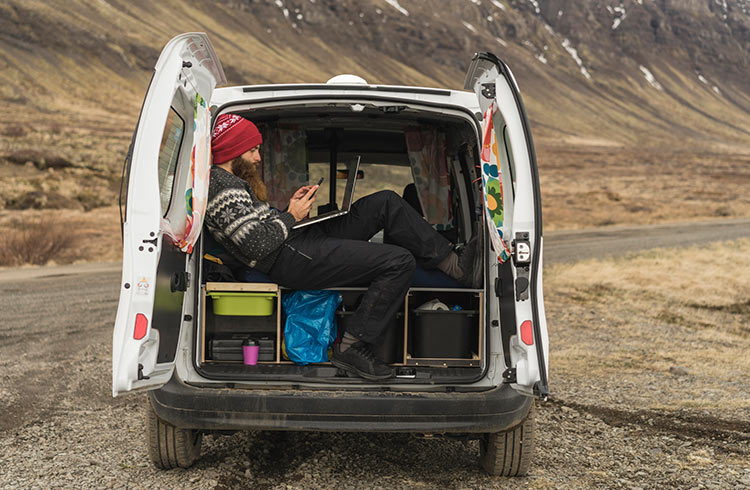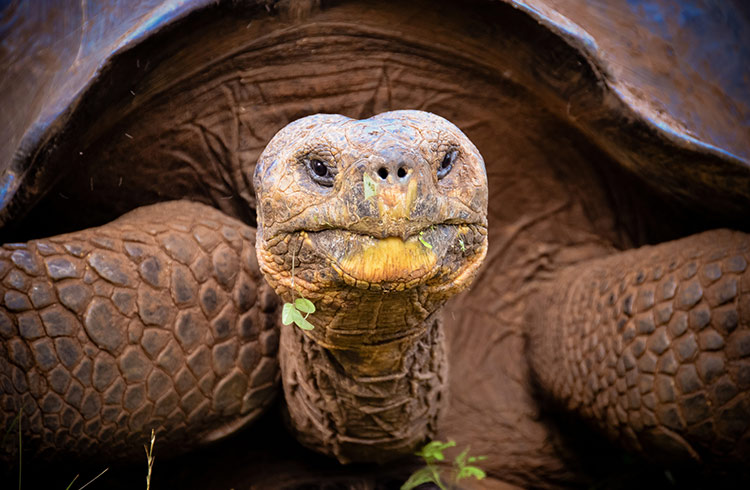What does it mean to be a travel writer? We discuss how she got her start, the lifestyle and where she sees the industry going.
 Photo © Alex Leviton
Photo © Alex Leviton
How did you get started?
By accident, serendipity, and a federal crime. After university, I vacillated between writing and publishing jobs and fulfilling my travel addiction. I became the Managing Editor of a "spiritual lifestyles" magazine and was on an assignment in Northern Ireland when I found out the magazine was folding. It turned out the publisher’s mother was financing it with $4.7 million of embezzled funds. I’d lost my job and a month’s salary, but the least I could do was place that damn story. I did, and then some. A few years later, I met up with very friendly Lonely Planet folks at a job fair while at Berkeley’s journalism school. That author job sounded way, way too hard, but hey, were there any editorial roles open? I took their writing test, passed, and was covering Slovenia within the year. I swore the minute I finished I would never, ever do anything that insanely difficult ever again. That was about a dozen destination assignments and more than two dozen LP projects ago.
What are the biggest misconceptions about travel writing?
That it’s easy or that it’s not a serious job. People conjure images of us poolside, getting served mai tais at comped beachfront resorts while words magically jump on a page by themselves. You need to be committed to writing, research, traveling, and your destinations. Some of my Lonely Planet colleagues are now considered world-renowned experts in places such as Myanmar, Haiti, and Saudi Arabia. You do get the travel writers who seem to be in it solely for the mai tais and free digs, but like any profession, travel writing also has its slackers.
How important is it to be able to write for all mediums?
If you’re one of the eight-and-a-half lucky travel writers who work for high-end magazines or write only narrative travelogues, you’re probably safely retiring to a romantic Irish cottage with quill and ink. The rest of us have to be prepared to write for every medium now. In addition, you need to consider diversifying other skill sets. These days, it helps to become proficient in a couple of other related skills: videography, photography, teaching, basic tech or WordPress skills, SEO, or knowing your way around a CMS (content management system). It’s not glamorous, but it’s how the majority of us cobble together a living.
What are the best and worst parts of the job?
I’ll talk about guidebook work here. 20% of it is absolutely the dream job you imagine it to be, 70% of it is drudgery, and 10% of it can be worse than the worst job you could imagine. But, whoa Nelly, that 20% is good. Very good. Almost worth the robberies, hospitalizations, parasites, car accidents, food poisoning, missed weddings and funerals, and whatever else we’ve all been through. We get to spend months immersed in meeting hundreds of new people, learning endlessly about other cultures, and we experience new things every few minutes or even seconds of every day for weeks on end. Woe to the trivia team that goes up against a team of guidebook authors in history or geography. I’ll explain more of the good later, but the drudgery looks like any data entry office job, on meth. Most authors I know aim for 2,000 words a day, seven days a week, until the deadline. Our assignments can be upwards of half a million characters, and many of those are phone numbers, opening hours, or addresses.
What characteristics do you think all good travel writers have in common?
First, for all travel writers: good writing skills, insatiable curiosity, and a high level of general knowledge. Also, you need to be reliable and trustworthy. Your readers are entrusting you with some of the most financially and emotionally important decisions of their lives; don’t fuck it up. Plus, travel writing is a small world, and the editors all talk to each other. Be on time, meet your word count, and follow instructions. For most guidebook work, you also need the stamina of a mountain goat. Imagine the hardest and longest days you’ve ever had at work or travel, combine them, and do them all in a foreign country or language while checking into a new hotel or hostel every night or two. And that’s just an average day.
Intuition is rarely mentioned, but as an editorial director, I’ve come to appreciate it immensely in my writers and interns. In a way, the easier it is to find travel information, the harder our jobs become. You need to have an insight that the reader wouldn’t get by scouring the internet.
What has been your most memorable assignment?
I’ve got to say the Caribbean Islands in 2005 (seven islands from Anguilla to St. Kitts in 3½ weeks). Sure, I got robbed in St. Martin and I had to do an interview on Nevis TV with a face full of mosquito bites, but that was pretty typical. Guidebook authors don’t get expense accounts as many assume, so you learn quickly when to save and when to splurge. I find these creative workarounds have given me some of my most memorable experiences.
While the average hotel room in Anguilla was about $400, I stayed in an inn for local workers for $20. Sure, the floor crunched with every step from the bugs, but man, I got kick-ass intel. With my driver’s license was stolen, I hitched dozens of rides – wealthy St. Barth visitors who explained how the island had been their version of summer camp for over a generation, and the head of casino security on St. Kitts who showed me around the entire island. To save money and time, on a tip from the harbormaster in St. Eustatius, I hitched a boat ride from a fisherman named Thomas and his rasta buddies. They spent hours walking me through their town’s reggaeton-filled streets, introducing me to their brand-new puppies, showing me where to get my passport stamped and how to take the local bus. One of the hardest parts of my job is that I simply can’t stay in touch with all of the absolutely amazing people I’ve met, but readers owe a huge debt to these folks on every book.
What do you do in your downtime on assignment?
In a way, the job of a guidebook author is to cram ten months of downtime into four or six weeks. From 8am to 11pm or later seven days a week, you’re having Clockwork Orange levels of "fun". I think my record was visiting about 60 sights in one day in Rome: hotels, restaurants, museums, laundromats, bus stations, and a cat sanctuary. I was so physically and mentally drained by about 9pm, I just sat down and started to cry. When I needed downtime, I would use it to do laundry, check email or stay in touch back home. However, sometimes I would slow down the pace, especially in a location I knew well. I once toured the Basilica of St. Francis in Assisi for four hours with a Zambian Franciscan friar (who remains a friend, 10 years on).
What makes a great travel story?
Is the story about you and your experiences, or is your perspective helping evoke my feelings or imagination? Have I learned something? Do I feel like I would have a better sense of the place when I step off the plane? As in journalism, follow two simple mantras: 1) show, don’t tell and 2) provide a good hook. In the first few sentences, prove to your readers we can trust you and you’re going to entertain us, and then write the rest of the narrative so we can picture being right there with you. I’m also a huge fan of humor and could read Bill Bryson all day.
What skills have you picked up from being on the road?
About a year and a half ago, my house caught on fire. Like, jump-out-of-bed, flaming bedroom wall on fire. The next few weeks were a horrifyingly awful experience of course, but I quickly realized that level of intensity was almost exactly like a guidebook assignment. Instability, no secure housing, 16-hour days, people talking in foreign languages. I went into what l call guidebook author mode (an almost meditative ability to shut the fuck up and get shit done under any circumstances), and I got through it.
What advice do you have for aspiring travel writers?
These days, the field is much tougher to break into professionally, but at the same time, you can start your own travel blog within approximately eleven minutes of finishing this paragraph. While there are a lot of blogs of varying quality out there, the especially dedicated and the good ones truly do get noticed.
Learn from others at conferences like TBEX or the Book Passage travel writers and photographers conference, or network in groups like Travel Massive or local societies of professional travel writers. Be willing to start anywhere and work ridiculously hard: online magazines, local newspapers, trade publications, and internships. And I can’t stress this enough if you want to be a professional travel writer or guidebook author these days: You need to specialize and become an expert on something. Japanese modern art. Delhi street food. London archaeology. The South Pacific. Arabic. Editors aren’t going to send a new writer on a wine tour of Southern France, but if you’ve spent four years as a sommelier and have written 10 articles about viognier, you’re getting somewhere. As an editor, I was invited to swim with whale sharks in the Philippines. Instead, I sent one of my most dedicated Asia- and adventure-focused writers, knowing he’d do a better job.
And, develop your writer’s voice. I’ll be teaching my Finding Your Voice exercise to the competition winners in Berlin, but anyone can find a few friends and do it. Narrow your "voice" words down, know your regions or topics, and then focus, focus, focus.
Related articles
Simple and flexible travel insurance
You can buy at home or while traveling, and claim online from anywhere in the world. With 150+ adventure activities covered and 24/7 emergency assistance.
Get a quote


4 Comments